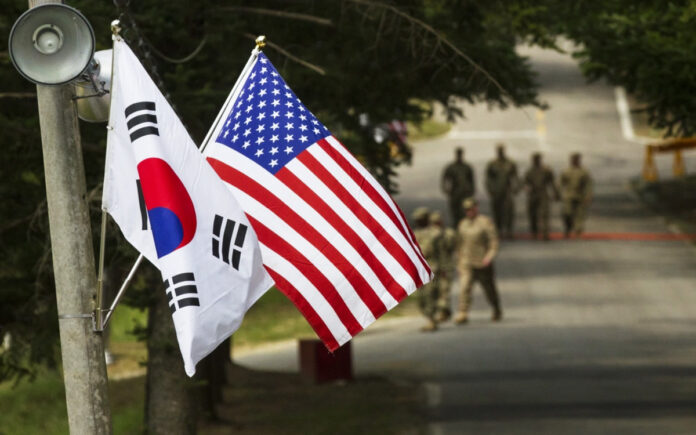Seoul: In a joint announcement on Tuesday, the United States and South Korea disclosed the appointment of envoys to commence early discussions regarding the division of expenses for maintaining US troops stationed in South Korea.
The early designation of Linda Specht from the United States and Lee Tae-woo from South Korea for a pact set to take effect in 2026 suggests an effort to negotiate a deal ahead of the potential reelection of U.S. President Donald Trump.
According to Lim Soo-suk, a spokeswoman for South Korea’s foreign ministry, preparations for the negotiations had already commenced, given the usual lengthy process.
“Both delegations will endeavor to engage in productive consultations that strengthen the combined defense posture and further solidify our alliance,” stated the ministries of both countries in a joint statement, without specifying the exact commencement date for the talks.
Trump, the frontrunner for the Republican nomination in the November election, previously criticized South Korea for “free-riding” on U.S. military capabilities and urged the country to contribute up to $5 billion annually for the U.S. deployment.
Read More: Ukraine Reports Damage to Russian Black Sea Fleet Ship in Drone Attack
Reports from South Korean media indicate that the early discussions on the Special Measures Agreement aim to secure an extension beyond 2026, preempting a potential return of Trump.
The current agreement, expiring in 2025, typically triggers negotiations for a successor pact closer to its expiration date.
During Trump’s tenure, negotiations between the two countries faced prolonged challenges, culminating in a deal where Seoul agreed to a 13.9% increase in its contribution, marking the largest annual rise in nearly two decades.
Lee, a seasoned diplomat well-versed in U.S. and security affairs, previously served as consul-general in Sydney and deputy nuclear envoy for North Korea.
Specht, a senior adviser and lead negotiator for security pacts within the State Department’s bureau of political and military affairs, brings extensive experience to the table.
With 28,500 American troops stationed in South Korea to deter nuclear threats from North Korea, South Korea has been funding various costs related to U.S. deployments since the early 1990s, covering local labor, military infrastructure construction, and logistical support.



